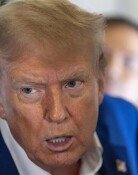President Orders Another Investigation Into North Korean Vessels Incursion Across NLL
President Orders Another Investigation Into North Korean Vessels Incursion Across NLL
Posted July. 19, 2004 22:09,
On July 19, Korean President Roh Moo-hyun asked for another investigation into the allegations of incorrect reporting by the Navy concerning failed communications with North Korean naval vessels, saying, Since the credibility of reports by military authorities to people and the president is key, we need more investigations on that incident. In the wake of presidents order, lawmakers of the ruling Uri Party on the same day strongly requested the government to take stern measures to those who are responsible and asked for a shakeup in military generals.
Responding to the move, the Ministry of Defense called off its announcement of the investigation into the incident, planned to be held on the same day, and launched a new full-scale probe since the details of the communications between South and North Korean vessels were not properly reported to the Chairman of the Joint Chiefs of Staff (JCS) in charge of ordering a military command, and the president, who exercises sovereign power. It appears inevitable that those in the position of making reports to high-ranking officials will have to hold themselves responsible, which is expected to cause considerable ripples.
After the Advisor to the President for National Defense, Yun Gwan-ung, revealed an interim report at the Cheong Wa Dae meeting with presidents secretariats and advisors, presidential spokesman Kim Jong-min quoted Roh as saying, The core of this probe lies in whether the situation at that time was reported correctly, not in how properly the operation was conducted."
Although commanders on the actual spot deal with operational problems, reports not only to high-ranking officials but to average citizens should unquestionably be correct. Whether the communications between the two nations vessels were made following a mutual agreement on communication procedures in the West Sea and whether the details of the exchanged messages were correctly reported can become very vital issues in relations between the two countries, Roh argued
The Defense Ministry concluded its investigation that the South Korean Navy responded properly to the Norths patrol boat according to the Navys rules of engagement, which required its vessels to send a warning message to the ship that had crossed the Northern Limit Line (NLL) before firing warning shots. The probe also said the Navy made a tentative decision that the Norths claim that the descending vessel was a Chinese fishing boat was implausible because it appeared that the North was taking a fraudulent measure. In addition, 18 minutes after the real fire, the JCS Surveillance and Communications Force intercepted messages from the Norths vessel and informed the JCS Intelligence headquarters of them. However, the JCS Office of Information Gathering found that it was not worthy as plausible information and did not report to the Chief Director of Intelligence and the Chairman of the JCS. Meanwhile, North Korea on July 19 cancelled a scheduled working-level military negotiation talk with the South.
Jung-Hun Kim Ho-Won Choi jnghn@donga.com bestiger@donga.com



![[속보]美 “미국인은 이란 당장 떠나라” 대사관 긴급 공지](https://dimg.donga.com/c/138/175/90/1/wps/NEWS/IMAGE/2026/01/13/133147285.1.jpg)



